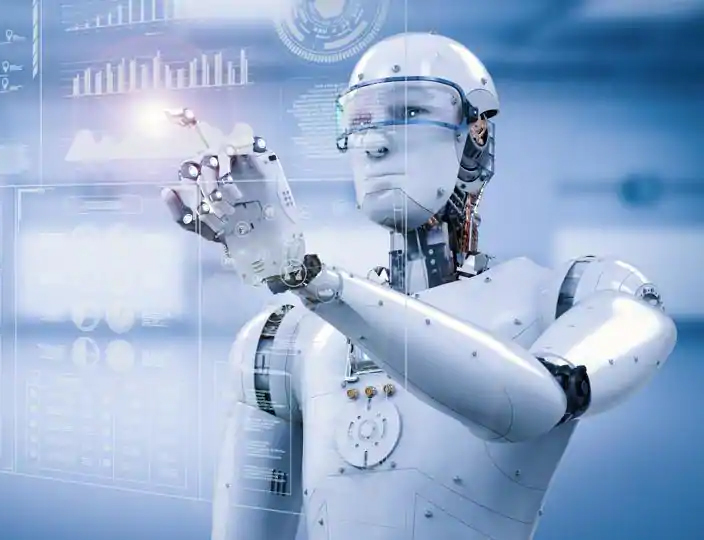We, as humans have always been the most intriguing species on the planet ever since our civilized life began approximately 10,000 years ago. We have come a long way from the belief in divine forces to finally discovering the laws of nature and working of the universe through the medium of science and technology. The understanding of the Earth, the Sun, the Moon and other planets led to the debunking of previously held religious beliefs paving the way for the advancement of Science as we know today. Instead of getting overawed by the mythical stories of flying gods or relying on psychics, mystics and shamanic rituals for body treatments or solutions to life problems, man learned to use scientific laws and technological and medicinal methods to ensure his survival and improve his lifestyle. In the past few centuries, with this education and learning, man has evolved into significant proportions when compared to his total lifespan on the earth.
Upon analysis of the breakthroughs in recent centuries, it is undebatable that the single most underlying factor behind this transition period has been human intelligence. The brain functionality of an average urban of today differs remarkably from most of his predecessors down the evolution line. The human being of today, especially in the developed world and many progressive countries, has become more analytical with better abilities of problem-solving skills. This is evident from the growth of mathematics and computation fields further enhanced by one of the greatest discoveries of mankind towards the end of the 20th century- ‘The computers’. From being a tool to assist and speed up calculations to a complete life transforming device- the computers have been constantly upgraded to suit all our needs.

On the other hand, the rise of the Internet which has been hailed as another great discovery in the field of electronics and communication industry has revolutionized the way we communicate with each other. The parameters of business between different corners of the world have seen a dramatic change with the rise of internet-supported platforms known as E-commerce. Humans across the world have become more interactive and the world has shrunk to extraordinary levels. The supply chain management has become more efficient and time-driven. The future success of any business depends on how well they adapt to changing business trends where the emphasis is on decreasing human intervention and dependence on manual labour. Major tech companies have contributed their success to decreasing margins of human errors in various processes and shortening product manufacturing and delivery timelines. The use of drones simulating a delivery boy has been successfully run by E-commerce giants like Amazon and Alibaba. Japan has been gearing up for its hosting of 2020 Olympics and its preparations are in full swing for establishing its image as a global tech leader. Driverless cabs accessed by smartphones to ferry visitors have already been launched along with the language translator and guest assistant Robots which have been installed at Airports and all sports venues. The trade and service industry is all set for a major overhaul with the advent of AI technologies. The concept of AI focuses on limiting or completely nulling the human errors and increasing the speed of processing simultaneously.
But the question arises on how far have we reached in the field of Artificial Intelligence technology? Would we ever be able to enhance the incredible abilities of a human brain by creating an artificial one? To what extent can we mimic or simulate the natural abilities of the human brain? So far we have intelligent modules which are thousands of times faster and error-free than the human brain but they are limited to certain specific functions and speeds only and are largely dependent on human programming. The competition between brain and machine has been trending for the last few decades. The famous battle between Chess legend Gary Kasparov and supercomputer Deep Blue stole headlines in 1997 when the grandmaster managed to secure a tight draw against the highly capable, errorless and faster machine. Today the focus is entirely on creating a machine which has an independent brain of its own and once installed doesn’t need to be programmed again. In short, a machine which can create thoughts and take decisions without any human assistance. A recent breakthrough was achieved when the brain of a worm was fed into a simulator. It was interesting to note that the simulator worked and copied the moments exactly like the organic worm. It is further interesting to note that the brain of the worm has just 300 neurons when compared to a human brain which has a whopping 86 million neurons where a single neuron can interact with 8000 other neurons at a single point of time through synaptic connectors. As per the experts, the work of achieving 100% AI will need a lot of technology enhancements which although doesn’t look achievable in the near future but is not practically impossible. The present-day motherboards and systems will considerably heat up while processing data similar to a human brain and would require thousands of Terabytes of uninterrupted data for the model to succeed.
But what if a perfect AI model is achieved? What will be the repercussions on the society and the world? How dangerous will it be when we create an independent thinking mind with a perfection scale of 100%? What about human emotions and ethics? A demonstration to these scary doubts and prophecies could be seen in the Hollywood movie Transcendence which highlighted the dangers AI could pose on mankind. Yet whatever said and done, one thing is for sure that mankind is about to witness another evolutionary change in its living and lifestyle in the years to come.


